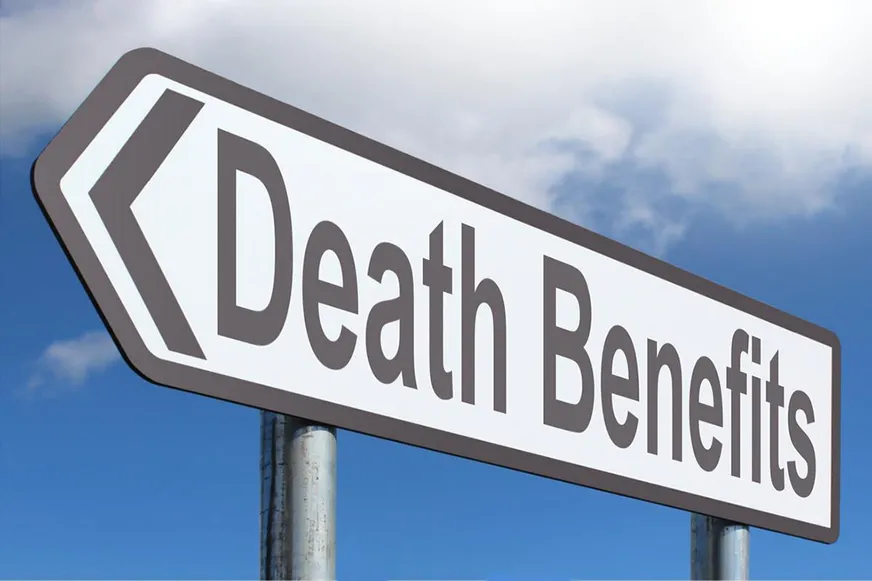A family can face many expenses in relation to the death of a loved one. This includes burial costs. Such expenses can be significant.
Now, when a family has had a loved one prematurely taken from them because of a workplace accident here in California, they may qualify for death benefits under the state’s workers’ comp laws. Here in California, do such benefits include the coverage of burial costs?
They do. However, there is a limit to how much in burial expenses such benefits will cover. Currently, California workers’ comp death benefits include up to $10,000 worth of such costs. As a note, this coverage is limited to reasonable burial expenses.
Given the financial pressure a family can be under after losing a loved one, what happens in relation to any workers’ comp death benefits issues that arise in relation to a loved one’s death, including matters related to burial expenses, could have some major and long-term implications for a family. Therefore, it can be a very serious matter for a family when they encounter problems related to such issues.
Given this, when a California family suspects that their rights regarding the coverage of burial expenses or other death benefits aren’t being respected following a loved one dying on the job, they may want to promptly bring their suspicions to a skilled workers’ comp attorney. Such lawyers can assess the situation for a family and advise them on what options for responding to the situation the law makes available to them.
What Exactly Are “Reasonable Burial Expenses” Under California Law?
In the context of California workers’ compensation death benefits, the term “reasonable burial expenses” is legally defined and refers to the types of funeral and burial-related costs that are customary and appropriate based on community standards. California Labor Code Section 4701 limits these benefits to a maximum of $10,000, but that figure doesn’t automatically guarantee reimbursement of all expenses.
Reasonable expenses typically include the basic services offered by a funeral director, preparation of the deceased’s remains, casket or cremation costs, transportation of the body, use of a chapel or viewing room, gravesite services, and required paperwork such as death certificates or burial permits. However, excessively luxurious services, extravagant floral arrangements, or extended memorial events may fall outside what is considered reimbursable under the law.
The Division of Workers’ Compensation (DWC), under the California Department of Industrial Relations (DIR), is the agency that oversees these determinations. If a dispute arises over whether a particular expense is “reasonable,” the burden of proof generally falls on the claimant to demonstrate that the cost aligns with standard pricing for comparable services in their area.
Who Qualifies to Receive Burial and Death Benefits?
Eligibility for workers’ compensation death and burial benefits in California depends on the claimant’s relationship to the deceased and their level of dependency. According to California Labor Code Sections 4702 and 4703, both total and partial dependents may be eligible for compensation.
A spouse, registered domestic partner, or minor child under the age of 18 is generally presumed to be totally dependent. Full-time students under 23, dependent parents, disabled adult children, and others may also qualify if they can show financial reliance on the deceased worker at the time of death.
Each case is fact-specific. For example, a child living with the deceased full-time may automatically qualify for benefits. In contrast, a dependent parent may need to provide documentation, such as bank statements or affidavits of support, showing ongoing financial assistance. If multiple dependents exist, the benefit is typically apportioned among them based on their levels of dependency.
What Documentation Is Required to Support a Burial Expense Claim?
To secure reimbursement of burial expenses, a surviving dependent must file a workers’ compensation death benefit claim, usually by submitting a DWC-1 Claim Form to the employer or the employer’s insurance carrier. Along with this form, the following documentation may be required:
- A certified copy of the death certificate
- Itemized funeral home invoices and receipts
- Proof that the death occurred as a result of a work-related incident
- Evidence of dependency (e.g., tax returns, lease agreements, child support orders)
If a burial occurred before the claim was filed, retroactive reimbursement may still be possible—provided that receipts are retained and submitted promptly.
What Is the Deadline to File for Burial Benefits?
The standard statute of limitations for filing a workers’ compensation death benefit claim is one year from the date of death. However, this can vary if the date of injury and date of death differ significantly, especially in cases involving occupational illness or delayed complications.
For instance, if a worker was injured in early 2023 and later died in 2025 due to related complications, the one-year clock may not start until the date of death. Nevertheless, missing this deadline can permanently bar a claim, including the reimbursement of burial expenses, so families are strongly advised to consult legal counsel early in the process.
What Happens If the Claim Is Denied or Disputed?
In some cases, insurance carriers may dispute burial expense claims. This can occur for a variety of reasons, including:
- The insurer does not agree that the death was work-related
- The documentation submitted is incomplete or contradictory
- The claimed expenses are deemed excessive or non-standard
- The family did not meet the filing deadline
- There are questions over the claimant’s dependency status
When this happens, the family has a legal right to appeal the denial by filing with the Workers’ Compensation Appeals Board (WCAB). The WCAB acts as a judicial body that adjudicates disputes between claimants and insurance carriers. These hearings can be complex and procedural, which is why many families seek legal representation to ensure their case is properly presented and argued.
Other Death-Related Benefits Beyond Burial Expenses
While burial expenses are one component of death benefits, California workers’ compensation laws also provide for weekly payments to eligible dependents. These payments are based on a percentage of the deceased worker’s average weekly wage, subject to minimum and maximum limits set by the state.
Additionally, in cases where the employer was grossly negligent or failed to maintain safe conditions, other legal avenues may be available, such as wrongful death claims filed in civil court. However, these claims must be handled separately from workers’ compensation and follow different legal standards.
How Long Does It Take to Receive Burial Compensation?
The processing time for burial reimbursement varies by case; however, families can generally expect a resolution within 30 to 90 days from the date a completed claim is submitted. Delays often result from incomplete forms, missing documentation, or investigation by the insurer regarding the cause of death.
Working with an experienced attorney can help expedite the process by ensuring all required documents are submitted correctly and by responding quickly to insurer inquiries.
Are These Benefits Taxable?
No. Burial expense reimbursements under California workers’ compensation are not considered taxable income to the recipient. This ensures that families receive the full amount of the benefit without additional financial burden.
What Role Does a Workers’ Compensation Attorney Play?
Given the complexity of California’s workers’ compensation system and the emotional toll on families, legal guidance is crucial. Attorneys who specialize in workplace injury law can:
- Assess the eligibility of surviving dependents
- Review the reasonableness of burial expenses
- Ensure compliance with all procedural rules and filing deadlines
- Represent families during WCAB hearings
- Negotiate directly with insurance carriers
At Hussain & Gutierrez, our legal team is deeply experienced in representing families who have lost loved ones due to workplace accidents. We understand the pain and uncertainty that follows such tragedies and are committed to helping you secure the compensation you’re entitled to under California law.
If your family has lost a loved one due to a work-related incident and you’re facing questions or disputes about burial expenses or death benefits, don’t wait. These claims are time-sensitive and can have long-lasting financial impacts if denied.
Reach out to Hussain & Gutierrez today for a consultation. Our experienced California workers’ compensation attorneys can walk you through your rights, evaluate your documentation, and advocate for the justice your loved one deserves.
Frequently Asked Questions (FAQs)
What is the current burial expense limit under California workers’ comp?
As of the current law, the maximum reimbursable amount for burial expenses is $10,000, provided the costs are considered reasonable and customary.
What happens if my burial claim is denied?
You have the right to appeal the denial by filing with the Workers’ Compensation Appeals Board (WCAB). An attorney can guide you through the hearing process and help build a strong case.
Who can receive workers’ comp death benefits?
Spouses, domestic partners, minor children, and other proven dependents may qualify for death and burial benefits, depending on the degree of dependency at the time of death.
Is there a deadline to file for burial expense reimbursement?
Yes. In most cases, the claim must be filed within one year of the date of death. Exceptions may apply based on when the injury occurred and when death followed.
Are burial reimbursements taxable?
No. Under California law, workers’ compensation burial reimbursements are not taxable income.



